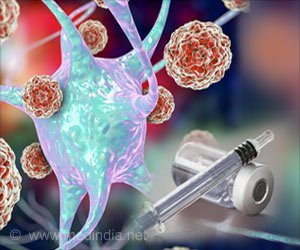Fighting Metastasis in Cancer Treatment

Justine Lengrand, Ievgenia Pastushenko, Sebastiaan Vanuytven, and her colleagues found that cancer cells presenting EMT
Researchers have shown that increasing Netrin-1 promotes EMT while targeting Netrin-1 decreases EMT.
In collaboration with NETRIS Pharma which has developed a therapeutic antibody specifically blocking the interaction between Netrin-1 and its receptor UNC5B, the ULB researchers have shown that the administration of the therapeutic antibody leads to a reduction in tumor formation but also blocks EMT in these tumors, which reduces their ability to give rise to metastases and sensitizes the tumor cells to chemotherapy.
Advertisement
“We are extremely happy and excited to have identified the first drug that can target EMT in vivo and therefore reduce the formation of metastases and resistance to chemotherapy”, explains Justine Lengrand, the first author of the study.
Confronting Cancer’s Most Lethal Traits
After having demonstrated the effectiveness of the anti-Netrin 1 antibody in preventing EMT in animal models, the ULB researchers then collaborated with researchers from the University of Lyon and Ntris Pharma to study the effect of this drug on EMT in patients with endometrial cancers.
The researchers and clinicians administered the anti-Netrin antibody to patients in clinical trials in France. These studies showed that the administration of the therapeutic antibody was well tolerated and showed no toxicity.
More importantly, they showed on biopsies from the tumors taken before and after administration of the drug, that this therapy decreased EMT in patients with endometrial cancers.
“This is a major world premiere, we have discovered a new drug that can reduce EMT, decrease metastasis and stimulate the response to chemotherapy in preclinical models. In a second study, the researchers and clinicians provided the proof of principle for the medical application of our fundamental discovery and showed that the administration of the anti-Netrin-1 antibody inhibits EMT in cancer patients. We have now to assess whether the administration of the anti-Netrin-1 antibody and the reduction of the EMT will provide to the cancer patients a better clinical response to chemotherapy and immunotherapy” comments Professor Cdric Blanpain, the leader of this project.
The Belgo-French collaboration identifies novel innovative therapeutic combinations to sensitize tumors to chemotherapy and prevent tumor progression, the development of metastases, and resistance to anti-cancer therapy.
“In the long term, it will be necessary to determine the effectiveness of this new therapy on the survival of patients with endometrial cancers and assess the efficacy of this new drug combination for the treatment of other types of cancers presenting EMT such as lung or breast cancers” comments Professor Cdric Blanpain, the last author of the study.
Reference :
- Netrin-1 blockade inhibits tumour growth and EMT features in endometrial cancer
– (https://www.nature.com/articles/s41586-023-06367-z)
Source: Eurekalert
Source link
#Fighting #Metastasis #Cancer #Treatment



